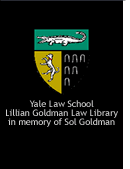
 |
 |
- produced by Praveen Krishna & Michael Yarbrough Synopsis: Applicants seeking amnesty for human rights violations had to prove to the Amnesty Committee that their actions had a “political objective.” The relevance of politics was evaluated with respect to three aspects of their crimes: (1) the target of their actions; (2) the motive behind those actions; and (3) the entity authorizing those actions. This video presentation specifically explores some of the ambiguities confronted by the Committee in their attempt to distinguish violence in the service of politics from violence that was motivated either by simple racism or by self-interest. It tells the stories of three sets of amnesty applications, contrasting their stories with a broader conception of the meaning of “political objective” by examining the alleged state encouragement of township violence during the 1980s. The presentation begins with Amnesty Committee Member Judge Ngoepe’s assertion that violence motivated by racism is an entirely separate matter from violence motivated by politics. Like the Committee and its authorizing statute, Judge Ngoepe assumes that there is a clean distinction between political violence and violence with other motivations. Frequently those other motivations, including self-interest and bald racism, are conceptualized as personal in nature, as opposed to the presumption of politics as institutionally embedded. The first segment, concerning the St. James Massacre, raises the question of what constitutes an appropriately political target. The participants in the massacre, members of a black paramilitary organization associated with the Pan-Africanist Congress (PAC), broke into a church and fired upon the mainly white congregation. None of those murdered were employees of the state and in fact, the St. James church had a reputation for fostering racial tolerance. Nonetheless, the applicants contend that as members of the PAC they saw white churches as deeply implicated in the oppression of the black majority. The second segment, on the amnesty applications of two white supremacists, asks what constitutes an appropriately political motive. It directly takes up Ngoepe’s assertion about the difference between political and racist violence. The applicants, Jean Du Plessis and Cornelius van Wyck, contended that their actions were motivated by racism but that racism was inseparable from their political and religious beliefs. The small size of their political party, with only four members, proves especially relevant to the Committee’s evaluation. Who may legitimately claim to act under the commission of the state? This is the question of the third segment. It features two former police officers who became security guards and tortured a robbery suspect to death. The applicants contended that the suspect was a member of a violent liberation movement, and that their actions were thus legitimately motivated as a kind of police action. The final segment steps away from the Amnesty Committee hearings and considers the rise of gang violence in the townships during the 1980s. Although individual instances of gang violence, conducted primarily for personal gain by the immediate perpetrator, may seem apolitical, its overall rise in prominence was the direct result of state support. South African police officers provided arms to youth gangs and many times refused to arrest perpetrators. By encouraging township violence, supporters of apartheid aimed to send the message that a post-apartheid South Africa would be ungovernable due to the prevalence of so-called “black-on-black” violence. The racist undertones of this state policy return us to Judge Ngoepe’s assumption, forcing us to ask more closely if political and racist motives can be so easily separated. | |
Biographies Michael Yarbrough Michael is a member of the Yale Law School class of 2007 and a Ph.D. student in the Yale Department of Sociology, where he is a Junior Fellow of the Center for Cultural Sociology. After a three-year stint as Deputy Chief of Staff to U.S. Rep. Dennis Kucinich, Michael returned to the University of Chicago to earn an A.B. in sociology in 2001. While there he completed a thesis on the increasing adoption of gay and lesbian identities by black and coloured Capetonians, which received the Ruth Murray Prize for excellence in gender and women’s studies. Fluent in isiZulu, Michael is currently planning a dissertation on post-apartheid reforms in marriage law. Toward that end, he will be working at the Gender Research Project of the Centre for Applied Legal Studies in Johannesburg in summer 2005. At the Law School, he is an Articles Editor of the Yale Journal of Law and Feminism, and his review of John L. Gibson’s Overcoming Apartheid is forthcoming in the Yale Human Rights and Development Law Journal.
Praveen Krishna Praveenis a member of the Yale Law School class of 2005. He graduated from Harvard College in 2000 with a degree in Government. Prior to law school, he was a research associate at the Brennan Center for Justice in New York City. At Yale, he has served as a senior editor of the Yale Law Journal, a research assistant to Professor Ian Ayres and Michael Graetz, and a member of the lawyering ethics and legislative advocacy clinics. After graduation, he will be a law clerk to the Honorable R. Lanier Anderson III of the U.S. Court of Appeals for the Eleventh Circuit. |
|
| Return to Multimedia Page | List of Websites | Bibliography |
|